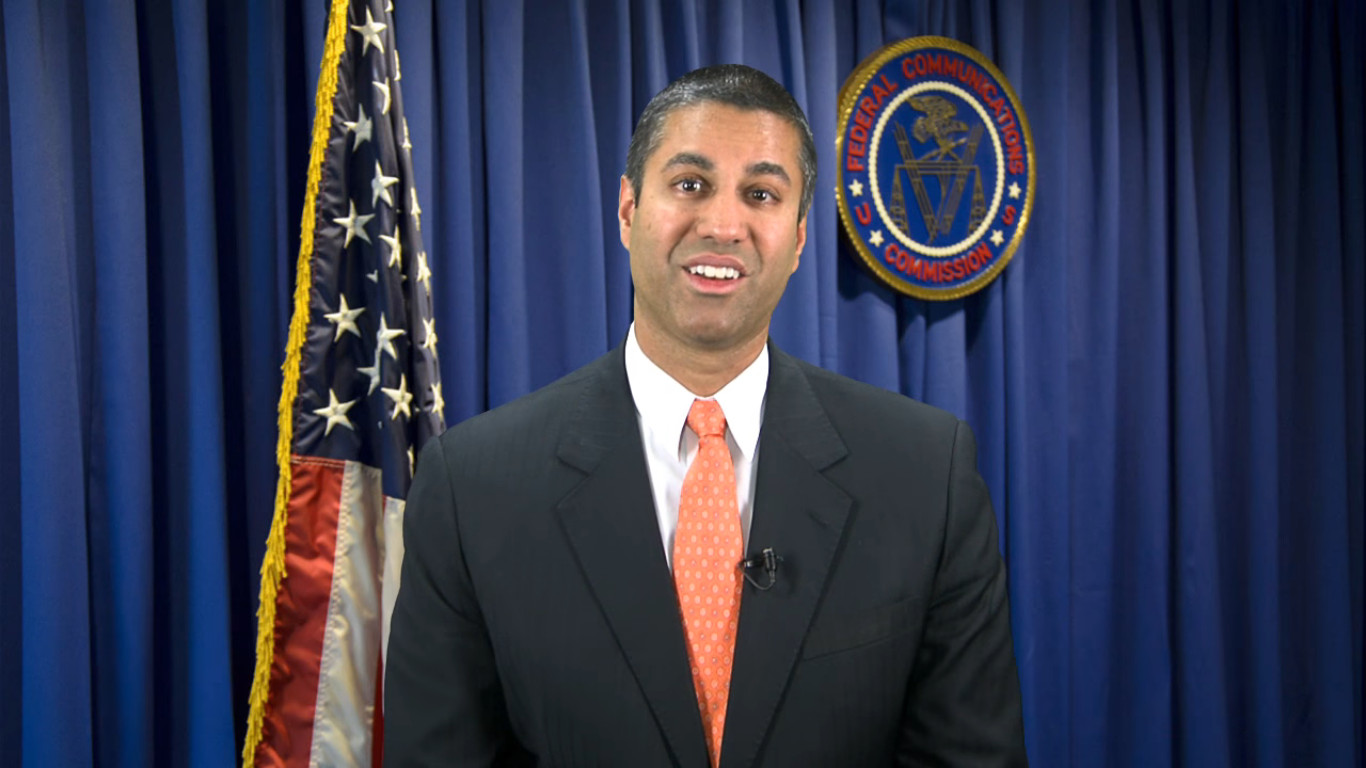(BIVN) – The Federal Communications Commission today voted to end the 2015 Open Internet Order by then President Barrack Obama, also known as net neutrality, and Hawaii’s Democratic officials are not happy with the change.
Even before Thursday’s open commission meeting, Hawaii’s Attorney General Doug Chin joined 18 state attorneys general in an attempt to delay the FCC rulemaking decision. According to a letter that was sent to the FCC, the attorneys general said, “[a] careful review of the publicly available information revealed a pattern of fake submissions using the names of real people. In fact, there may be over one million fake submissions from across the country. This is akin to identity theft on a massive scale – and theft of someone’s voice in a democracy is particularly concerning.”
Attorney General Chin said, “Net neutrality means that internet service providers should not be deciding what we can access on the Internet and how easily we can access it. This rushed attempt to rollback net neutrality, riddled with irregularities, should be slowed down to let actual live people weigh in on the issue.”
Big Island Video News: “Battle Lines Drawn As FCC Plans Net Neutrality Repeal” (Nov. 21, 2017)
Today, the FCC – under the leadership of chairman Ajit Pai – went ahead with the vote to repeal.
“Many words have been spoken during this debate but the time has come for action,” Pai said in a statement. “It is time for the Internet once again to be driven by engineers and entrepreneurs and consumers, rather than lawyers and accountants and bureaucrats. It is time for us to act to bring faster, better, and cheaper Internet access to all Americans. It is time for us to return to the bipartisan regulatory framework under which the Internet flourished prior to 2015. It is time for us to restore Internet freedom.”
The FCC issued a media release following the vote:
 Federal Communications Commission
Federal Communications Commissionon Dec. 14, 2017
WASHINGTON, December 14, 2017 — The Federal Communications Commission today voted to restore the longstanding, bipartisan light-touch regulatory framework that has fostered rapid Internet growth, openness, and freedom for nearly 20 years.
Following detailed legal and economic analysis, as well as extensive examination of comments from consumers and stakeholders, the Commission reversed the FCC’s 2015 heavy-handed utility-style regulation of broadband Internet access service, which imposed substantial costs on the entire Internet ecosystem.
In place of that heavy-handed framework, the FCC is returning to the traditional light-touch framework that was in place until 2015. Moreover, the FCC today also adopted robust transparency requirements that will empower consumers as well as facilitate effective government oversight of broadband providers’ conduct. In particular, the FCC’s action today has restored the jurisdiction of the Federal Trade Commission to act when broadband providers engage in anticompetitive, unfair, or deceptive acts or practices.
The framework adopted by the Commission today will protect consumers at far less cost to investment than the prior rigid and wide-ranging utility rules. And restoring a favorable climate for network investment is key to closing the digital divide, spurring competition and innovation that benefits consumers.
The Declaratory Ruling, Report and Order, and Order adopted by the Commission takes the following steps to achieve these goals:
Declaratory Ruling
- Restores the classification of broadband Internet access service as an “information service” under Title I of the Communications Act—the classification affirmed by the Supreme Court in the 2005 Brand X case.
- Reinstates the classification of mobile broadband Internet access service as a private mobile service.
- Finds that the regulatory uncertainty created by utility-style Title II regulation has reduced Internet service provider (ISP) investment in networks, as well as hampered innovation, particularly among small ISPs serving rural consumers.
- Finds that public policy, in addition to legal analysis, supports the information service classification, because it is more likely to encourage broadband investment and innovation, thereby furthering the goal of closing the digital divide and benefitting the entire Internet ecosystem.
- Restores broadband consumer protection authority to the Federal Trade Commission (FTC), enabling it to apply its extensive expertise to provide uniform online protections against unfair, deceptive, and anticompetitive practices.
Report and Order
- Requires that ISPs disclose information about their practices to consumers, entrepreneurs, and the Commission, including any blocking, throttling, paid prioritization, or affiliated prioritization.
- Finds that transparency, combined with market forces as well as antitrust and consumer protection laws, achieve benefits comparable to those of the 2015 “bright line” rules at lower cost.
- Eliminates the vague and expansive Internet Conduct Standard, under which the FCC could micromanage innovative business models.
Order
- Finds that the public interest is not served by adding to the already-voluminous record in this proceeding additional materials, including confidential materials submitted in other proceedings.
FCC VIDEO: Open Commission Meeting – December 2017
Hawaii’s U.S. Senator Brian Schatz was one of the first to respond to the vote.
“Today, Trump’s FCC dealt a major blow to the free and open internet by repealing net neutrality rules,” said Sen. Schatz, who is the Ranking Member of the Senate Subcommittee on Communications, Technology, Innovation, and the Internet. “Because of Chairman Pai and the other Republican commissioners, there are no longer any rules in place to stop internet service providers from changing the internet as we know it. They are now free to block apps, slow websites, or even limit access to certain kinds of content. The best way to move forward is to turn our tweets and our comments into action.”
Hawaii Congresswoman Tulsi Gabbard, another Democratic supporter of net neutrality, also released a statement.
“Today, the FCC voted to put profits over people — a slap in the face to our democracy and the millions of Americans that have voiced comments, made calls, and fought to protect net neutrality,” Rep. Gabbard said. “Industry giants like Verizon, Comcast, and AT&T will now be able to control the access and speed of websites, stifle competition online, and turn the Internet into a pay-to-play forum.”
“The FCC’s decision today, led by FCC Chairman Ajit Pai, who used to work for Verizon, highlights the pervasive influence of corporations in our democracy,” Gabbard continued. “Congress must take action to reverse this decision, and ensure that the Internet remains an open, level playing field for all. We also must address the corruptive influence of special interests in our government by reforming our campaign finance laws, reversing Citizens United, and slamming shut Washington’s revolving door.”
Hawaii State Representative Matt LoPresti today called on Hawaii Attorney General Chin to explore pursuing legal action that would bar the effects of the FCC vote in Hawaii.
“I call on Hawaii Attorney General Doug Chin to pursue legal action because the protection and preservation of net neutrality is key to allowing equal access to all forms of internet content,” Rep. LoPresti said. “The FCC’s decision erodes such protections and empowers large and powerful internet service providers to control internet content in order to leverage corporate profits. I was pleased to learn that the Democratic Attorneys General Association is exploring this matter and urge Mr. Chin to protect net neutrality for the people of Hawaii.”


by Big Island Video News5:52 pm
on at
STORY SUMMARY
HAWAII - Hawaii state and federal lawmakers, and even the attorney general, are speaking out on today's vote by the Federal Communications Commission.